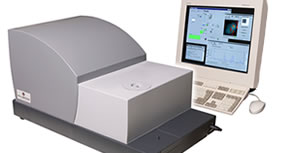Measuring up to the big boys
UK measurement specialist Millbrook Scientific claimed it has made the leap from small start-up to serious player in the emerging nanoscience sector after a year of strong growth.
UK measurement specialist Millbrook Scientific claimed it has made the leap from small start-up to serious player in the emerging nanoscience sector after a year of strong growth.
The Blackburn-based company, which develops instruments for measuring the chemical, optical and mechanical properties of surfaces at the nanoscale, doubled in size last year and turned in a profit for the first time.
Part of the impetus behind Millbrook’s growth came from the acquisition of Micro Materials, a leading specialist in measuring the mechanical properties of ultra-thin films and coatings. The addition of Micro helped boost Millbrook’s turnover by a healthy 85 per cent to £1.6m in the year ending March.
The company also delivered its first pre-tax profit, £83,000 compared with a deficit of more than £160,000 a year earlier, and scooped a Queen’s Award for Exports along the way.

Chairman Dr Peter Stefanini claimed: ‘I feel that Millbrook has over the last year grown up from being a developing start-up to a business with genuine breadth and depth.’
Register now to continue reading
Thanks for visiting The Engineer. You’ve now reached your monthly limit of news stories. Register for free to unlock unlimited access to all of our news coverage, as well as premium content including opinion, in-depth features and special reports.
Benefits of registering
-
In-depth insights and coverage of key emerging trends
-
Unrestricted access to special reports throughout the year
-
Daily technology news delivered straight to your inbox










Water Sector Talent Exodus Could Cripple The Sector
Maybe if things are essential for the running of a country and we want to pay a fair price we should be running these utilities on a not for profit...